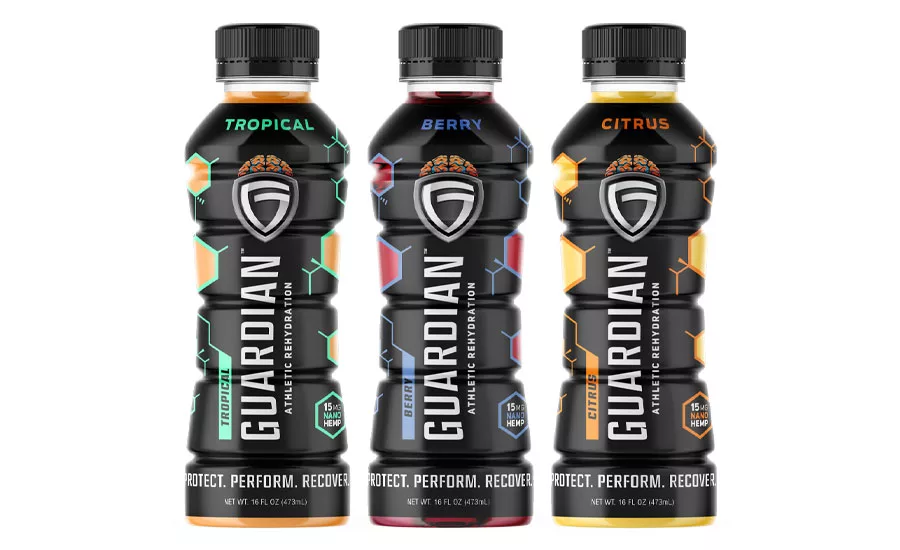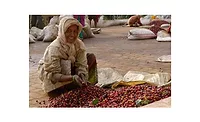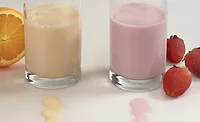R&D Feature
Sugar reduction trends hold steady in beverage development
Better-for-you trends continue to drive sweetener innovation

As the demand for healthier drink options increases, beverage brands are turning to innovative sweetener solutions to deliver the low- and no-sugar beverages that consumers are seeking. Whether naturally derived or otherwise, substitutions for nutritive sweeteners are dominating the beverage space.
An OutsideVoice Sweetening Study by Archer Daniels Midland (ADM), Chicago, showed that 67 percent of consumers are either somewhat or very concerned about sugars and sweeteners, and 39 percent indicated that reduced sugar is important to them when it comes to convenience food, drinks and snacks.
Sarah Diedrich, ADM’s marketing director, sweetening solutions and fibers, explains that consumer trends are ever-changing, but demand for reduced-sugar foods and beverages has been shaping sweetener development for many years.
“Recognizing a link between health problems like obesity and too much sugar consumption, consumers have pushed on brands to deliver products formulated with sweeteners that allow for less sugar and calories on the nutrition label,” she says. “Today, shifting consumer beliefs have led to the next generation of sweetening solutions, including clean-label sweeteners that appeal to individuals who perceive ingredients derived from natural sources as better aligned to their health and wellness priorities.”
According to the report titled “United States Food Sweetener Market Growth, Trends and Forecast (2020-2025) report by Hyderabad, India-based Mordor Intelligence, high intensity sweeteners (HIS) are projected to grow at a compound annual growth rate (CAGR) of 5.1 percent between 2019 and 2024. The report attributes this growth to increased awareness and usage of dietary foods, along with the growing population of overweight, obese, and diabetic patients.
“Most diet soft drink bottlers, certainly those in the United States, have now switched from 100 percent aspartame to blends of aspartame and ace-K for their second-ranking brands, and some top-line brands,” Mordor’s report states.
Although the report states that aspartame and sucralose are the dominant HIS sweeteners, stevia is seeing demand in the natural sweeteners category.
“In our survey of 9,000 U.S. consumers, when compared to 12 of the leading low- or no-calorie sweeteners, consumers ranked stevia leaf extract as the most healthful, as well as having the most positive perception on the label,” says Andy Ohmes, global director of high-intensity sweeteners, Cargill.
Supporting these trends, Cargill released EverSweet, a blend of stevia plant glycosides Reb M and Reb D produced using a fermentation process. In developing EverSweet, Cargill says its scientists invested more than 300,000 hours into studying the stevia leaf for the optimal balance of sweetness and taste, finding that Reb M and Reb D offered heightened sweetness and a taste closer to sugar.
“With EverSweet, beverage-makers can create great-tasting products with deep calorie reductions,” he says. “Unlike other stevia products, EverSweet provides sweetness without bitterness or a licorice aftertaste, delivering a more rounded taste profile with a faster onset of sweetness.”
ADM also is supporting the demands surrounding stevia with its SweetRight Edge. Released in 2019, SweetRight Edge has masking, taste-modification and bitterness-blocking capabilities, Diedrich says.
“SweetRight RSGS is a reduced-sugar glucose syrup offering exceptional functionality, which allows for up to 30 percent less sugar on the label of the finished product, as well as bulking and binding properties and excellent viscosity,” ADM’s Diedrich says. “It is ideal for performance and meal-replacement drink applications to help achieve lower added sugars while maintaining preferred calories.”
She notes ADM also has seen success for the sweetener in carbonated soft drinks, juice drinks, ready-to-drink teas and coffees.
“[SweetRight RSGS] is easily swapped with corn syrup to lower the sugar content of the finished product without any loss of functionality,” she says.
Getting the right mix
In an effort to support sugar-reduction trends while delivering on taste and texture, ingredient suppliers note that sweetener blends can fulfill this formulation need.
Sweeteners have a direct impact on the sensory attributes of a finished product, including mouthfeel, taste and texture, Diedrich explains. As such, to develop beverages that win over consumers in terms of label appeal and sensory qualities, she suggests product developers tailor formulation with the consumer in mind.
“ADM supports beverage developers by identifying the best sweetener or combination of sweeteners for the application, factoring in consumer preferences, functionality, flavor and mouthfeel,” she says. “Our sensory team helps brands achieve the best possible finished product by carefully assessing the sweetness balance in an application to ensure a great experience for the consumer.”
Cargilll’s Ohmes notes that when it comes to formulation, limited-sugar, reduced- and no-sugar-added beverages often can have a thin, watery mouthfeel. As such, he says zero-calorie erythritol is a great partner to stevia.
“Blending stevia with erythritol has a synergistic effect, resulting in more upfront sweetness and a rounder, more sugar-like sweetness profile,” he says. “Including a bit of erythritol helps build body into the beverage and rounds out stevia’s sweetness profile without adding to the calorie count.”
Additionally, when used at an inclusion level of 1.25 percent or lower, erythritol is approved to appear on ingredient statements as “natural flavor” in the United States, adding to its appeal for clean-label-seeking consumers, Ohmes explains.
Sweetness in sight
Although better-for-you beverages had already been trending, COVID-19 has accelerated the shift, placing additional demands on sweetener systems that support these products.
ADM’s Diedrich says that since COVID-19, ADM has seen an uptick in demand for comforting and familiar foods and beverages, which often have sweet characteristics, along with growing interest in permissible indulgences that has propelled innovation in the beverage space.
“Desire for rich, flavorful products is driven by consumers looking for a source of comfort during stressful times,” she says. “However, health motivations also contribute to shopping habits, meaning there is an opportunity to fulfill unmet demand for reduced-sugar and no-added-sugar products made with high-quality, real ingredients.”
Mordor Intelligence forecasts that the U.S. food sweetener market will grow at a CAGR of 0.9 percent between 2020 and 2025. This includes natural sweeteners such as sugarcane and sugar beet sweeteners, industries which Mordor states are better-developed in the United States than they are in other countries.
“Companies are focusing on catering to the rising demand for low-calorie products,” Mordor states. “Currently, the U.S. market is saturated, in the case of both natural and artificial sweeteners. Thus, the market is growing at a slow pace. These factors are augmenting the competition in the market studied.”
Cargill’s Ohmes says the company’s latest sweeteners are a game changer in terms of sweetness quality, opening the door to a lot of innovation in the beverage space.
“But we’re not done,” he assures. “We believe there’s room for even more improvement in the reduced-sugar sweetener solutions available to customers, so our investment and commitment to this space continues."
Leanne Wortman, senior food scientist at Cargill, adds that their Zerose erythritol is specifically formulated to replace sugar’s mouthfeel as a zero-calorie bulk sweetener, especially alongside Eversweet.
“Some super-sweet beverages like carbonated soft drinks have a sugar equivalent value (SEV) of 10 or higher,” she says. “It can be difficult to achieve higher SEV with most high-intensity sweeteners, but we have found with EverSweet, we can deliver a clean, sweet taste with a quicker onset versus other stevia products, providing a sweetening solution for sugar reductions up to 10 SEV.
Looking for a reprint of this article?
From high-res PDFs to custom plaques, order your copy today!






